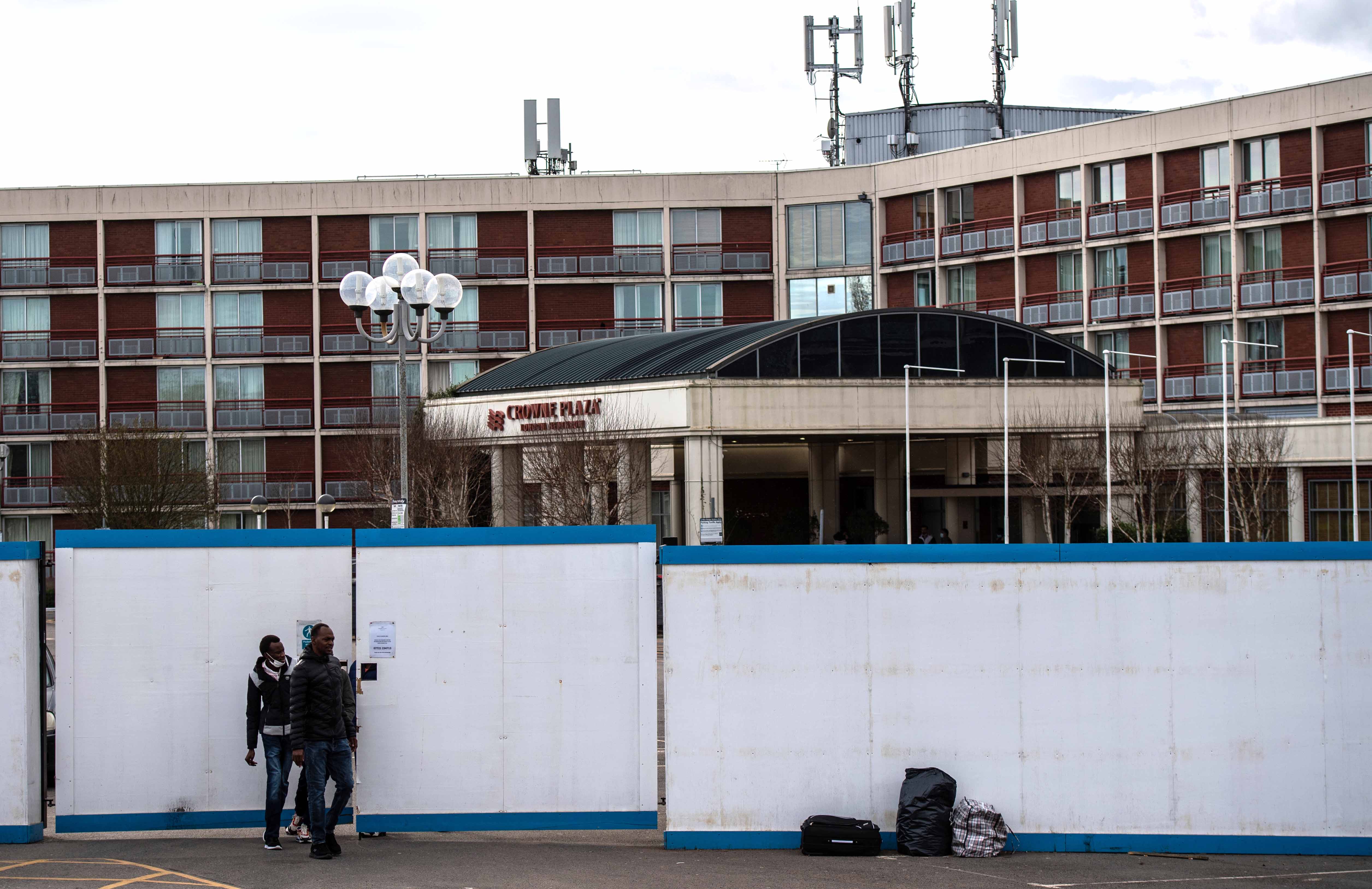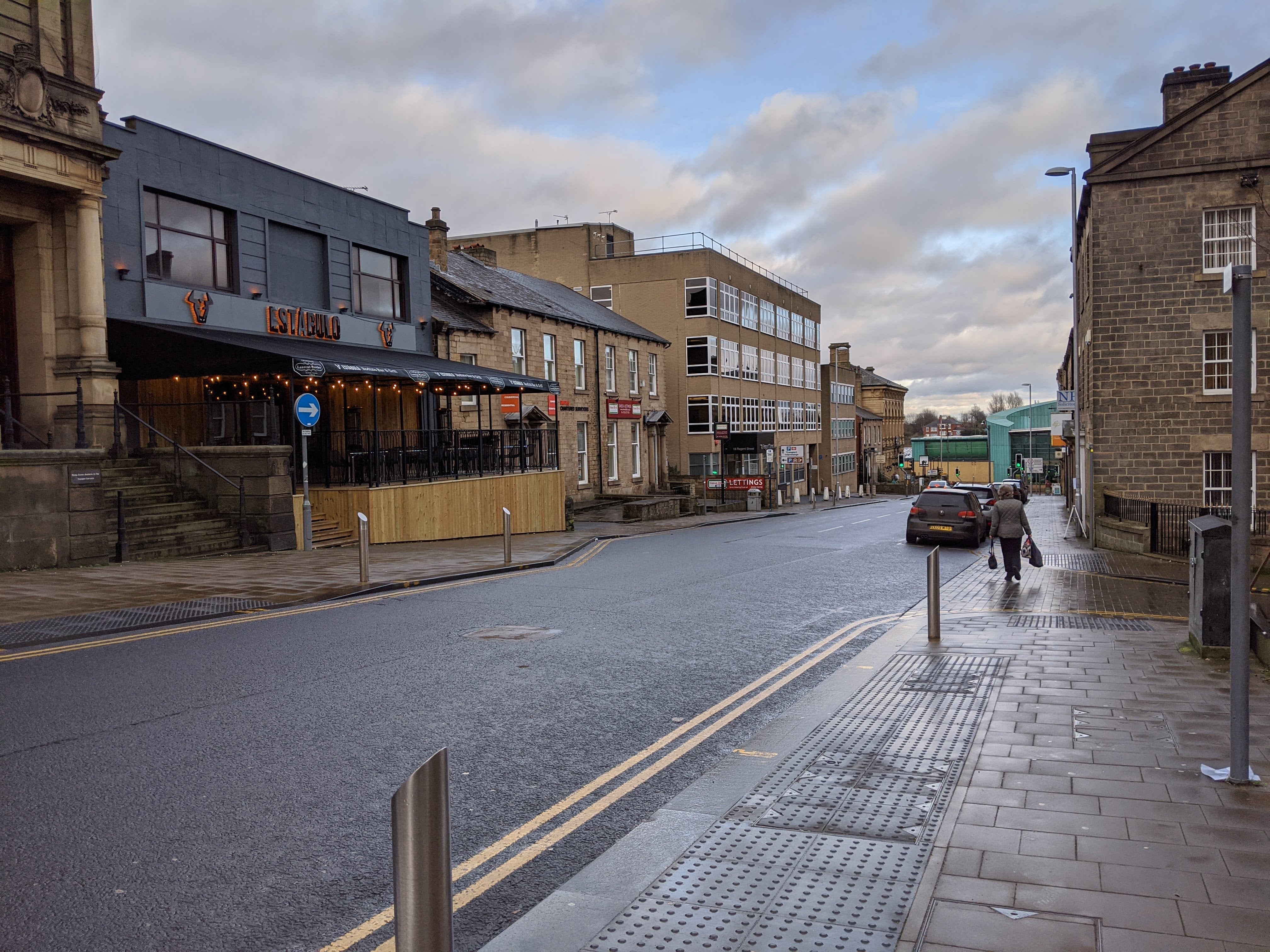Asylum seekers being moved to areas ‘at risk of far-right attacks’
Exclusive: Home Office contractors ignoring warnings from local councils as they move people across country to overcrowded areas

Asylum seekers are being placed in unsuitable housing where they are at risk of far-right attacks because Home Office contractors are “ignoring” warnings from local authorities.
The Independent has learned that UK councils that voluntarily house asylum seekers – known as “dispersal areas” – have withdrawn from doing so on the grounds that ministers are failing to “meaningfully engage” with them before placing people in their areas.
The Home Office began Operation Oak in February to “accelerate” moving the 9,000 asylum seekers housed in hotels during the pandemic into longer-term accommodation.
The Independent understands that there are currently more than 6,000 asylum seekers accommodated in hotels in London, and that more than two-thirds of these individuals – about 4,400 – are due to be dispersed to different parts of the country by the summer.
And thousands are being moved to areas that already exceed the recommended ratio of one asylum seeker to 200 local residents.
Read more:
- Experts named in government’s ‘flawed’ race report ‘shocked’ to see names in evidence contributor list
- ‘Institutional racism doesn’t exist,’ government’s race commission suggests in landmark report
- Boris Johnson’s most senior black adviser resigns
- UK urges EU to stay in vaccine export talks
- Priti Patel’s asylum plan based on ‘completely unfounded’ claims, say experts
The home secretary, Priti Patel, said the department was “working closely” with councils in dispersal areas – of which there are about 180 – and “taking account” of their views.
But councillors in Yorkshire and the West Midlands have told The Independent that the Home Office contractors responsible for finding and managing asylum accommodation in their areas are failing to engage with them and “ignoring” concerns they raise about the viability of certain areas.
The “mass movement” of people from hotels into authorities that already house large numbers of asylum seekers is a “recipe for disaster” as it will place more vulnerable individuals at risk, said John Grayson, from South Yorkshire Migration and Asylum Action Group (SYMAAG).
In Yorkshire and the Humber, the Home Office has contracted procurement of asylum seeker accommodation to Mears, a private housing company.
“I find it appalling that the Home Office has allowed Mears to overrule the local authority guidance on this. That guidance isn’t just about the overcrowded areas, it’s also things like whether asylum seekers will be at risk there, due to levels of far-right and criminal activity,” Mr Grayson said.

“I fear for the safety of some asylum tenants. I supported a family in Barnsley a few weeks ago who were placed in an area notorious for its far-right activity. The mother was being harassed on streets and the children were being bullied at school.”
Local councillors say their regions, in which many wards already exceed the dispersal ratio of one asylum seeker per 200 local residents, are being “oversaturated” with new people being moved in under Operation Oak, and that this is placing an “untenable” strain on local services. Some now often have a ratio closer to one asylum seeker to 80 local residents.
Stephen Houghton, the leader of Barnsley Council, said that Mears informed him earlier this month that it was going to “override” concerns raised by the council about the procurement of properties.
Mr Houghton said that while the company had previously refrained from procuring asylum housing in areas the council advised against using, there had been a “significant change in attitude” since the start of Operation Oak.
“We’ve raised issues about plans to procure in certain areas because of poor environment, criminality and other things, and we’ve offered to work with the Home Office and Mears to find alternatives, but they’re not coming back to us on this,” he said.
“They’re ignoring what we have to say. They’re going into areas we previously had an agreement not to go into. We’ve seen asylum seekers placed in situations that are entirely inappropriate.”
The Independent understands that between 2,100 and 2,500 asylum seekers are due to be moved from hotels in London and other cities to properties in Yorkshire and Humber, a region with an already large asylum population.
They’re ignoring what we have to say. They’re going into areas we previously had an agreement not to go. We’ve seen asylum seekers placed in situations that are entirely inappropriate
Mr Houghton said Mears was seeking to procure 75 additional bed spaces for asylum seekers in Barnsley alone, and that they were doing so in areas where there were already one-to-80 ratios.
“They want to put all these extra people there, which clearly isn’t suitable for local residents and clearly isn’t suitable for the asylum seekers themselves. Those ratios are just far too high,” he said.
“Dispersal is being concentrated significantly in the north. There’s little or none going on in the southeast or southwest, despite the fact that some councils have said they’re up for it.
“We’ve been a dispersal area for the last 20 years, so it’s not about not doing it. We’re more than happy to play our role and take our share, but the overall dispersal isn’t fair across the country.”
The Home Office said in a letter to the Home Affairs Select Committee this week that 11 new dispersal areas had recently been added in the south and east of England, and that while the number of people accommodated in these areas was “low”, it would “increase over the coming months”.

But councils and charities say that in reality, the Home Office contractors are continuing to concentrate procurement of properties in parts of the country with cheaper housing, despite concerns about the safety of asylum seekers in these areas.
A Home Office spokesperson said the department was undertaking work to ensure that the distribution of asylum seekers was “spread evenly” across the UK.
Seven council leaders in the West Midlands wrote a letter to the home secretary this week, informing her they had decided to suspend participation in the asylum dispersal scheme because Home Office contractor Serco was seeking to place more asylum seekers in areas that already exceed the one-to-200 ratio.
The letter, seen by The Independent, states: “Whilst we understand and fully support moving asylum seekers out of hotels, we were alarmed to see that 65 per cent of the wider Midlands allocation under Operation Oak are intended to be placed in our authorities by April of this year.
“The current position is untenable and that we simply cannot continue to support in the same manner going forward without this inequitable position being addressed.”
Councillor Debra Coupar, of Leeds City Council, said Mears was seeking 400 new bed spaces in its “densely populated” city centre under Operation Oak, which would “put unnecessary demand on local services – especially with the time constraints they are operating under”.
She said: “Local authorities need to be at the heart of the conversations to find suitable accommodation in an area that we can guarantee can meet the individual and wider community needs.”
The minister for immigration, Kevin Foster, said it was “inaccurate” to claim the Home Office did not consult with local authorities over asylum dispersal, and that it only placed asylum seekers in particular areas “with the agreement of local authorities”.
“We do not proceed with a dispersal if provided with clear evidence as to why it would be unsuitable. We are grateful for the contributions these councils have made and for them being part of this system and we wish to get more areas to play their part in this work,” he added.
A Mears spokesperson said: “We work in partnership with councils and seek their agreement for any asylum accommodation and support arrangements. We have good relationships generally with local authorities and where any issues or concerns are raised we work to address these.”
Serco declined to comment, saying the fact that West Midlands councils were withdrawing from the asylum dispersal scheme was a matter for the Home Office.
Join our commenting forum
Join thought-provoking conversations, follow other Independent readers and see their replies
Comments
Bookmark popover
Removed from bookmarks